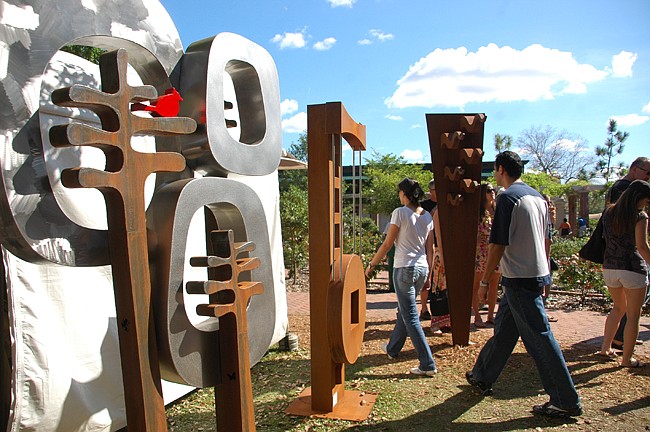- April 18, 2024
-
-
Loading

Loading

Artists planning on throwing their own festivals may need to think twice in Winter Park.
The City Commission passed an ordinance on first reading last Monday that would introduce a 30-day non-compete period before and after the city’s spring and fall art festivals – a brief ban against art festivals held by other outside entities.
City Commissioners were concerned that other art events could take away from the tradition and reputation of the spring and autumn art festivals, which together draw more than 500,000 art enthusiasts and collectors to Winter Park each year.
The revision to the land development code would not affect Winter Park businesses who regularly sell art.
“The concern staff had when they presented this to me is that the city has devoted substantial effort and sponsors have donated substantial money over many years to brand – as a Winter Park premier event – these two art festivals in the spring and fall,” City Attorney Larry Brown said. “It’s sort of a common intellectual property concept that when you’ve developed a significant interest in a brand, that you don’t allow other people to pawn off or dilute that brand by coming in too close in association with it.”
The city caught a glimpse of such a conflict last March. An outside art show sought a special event permit for an event at the Winter Park Village in the days leading up to the city’s spring art festival.
The Winter Park Village became aware of the potential conflict and called off the art show.
“This was in response to an entity that has been known to do that throughout the state, coming in and piggybacking around the same weekend or in very close proximity,” Commissioner Tom McMacken said.
“The illusion is that they are somehow tied in to what the two art festivals are sponsoring. It’s an unfortunate practice, but it happens. Hopefully this will keep it from occurring here in Winter Park.”
Winter Park residents spoke in favor of the non-compete periods. Resident Terrance Barter said cities including Tampa, Ft. Lauderdale and Naples have ruined the market by overcrowding their art show seasons with too many art events.
The 30-day bans would help ensure a larger showing for Winter Park’s spring and fall art festivals, giving their artists a better chance of making a profit, Barter said.
“If an artist were to come to the Winter Park show and be able to walk away with a thousand dollars in their pocket, if you allow one of these shows, that artist will probably see maybe six hundred,” Barter said. “People that come and save money are not discriminative.”
“By the time they come to what the city is so proud of, they’ve already spent their money.”
Winter Park artist Kathleen Brodeur said Winter Park’s art festivals are something unique and special to Central Florida and should be preserved and protected.
“The Winter Park autumn and spring art festivals are two of the best shows in the country,” said Brodeur, whose oil paintings have been featured in both events.
“The Winter Park art festivals have a certain prestige and high reputation. Flooding the market with more shows – especially from non-local promoters and organizations – will hurt the existing shows and the artists.”
Mayor Ken Bradley suggested limiting the number of art events in the city altogether, but Brown advised otherwise. The blackout period would be sufficient for now and could serve as a good starting point for further regulation, Brown said.
The ordinance will go before the City Commission for final approval at their Feb. 10 meeting.